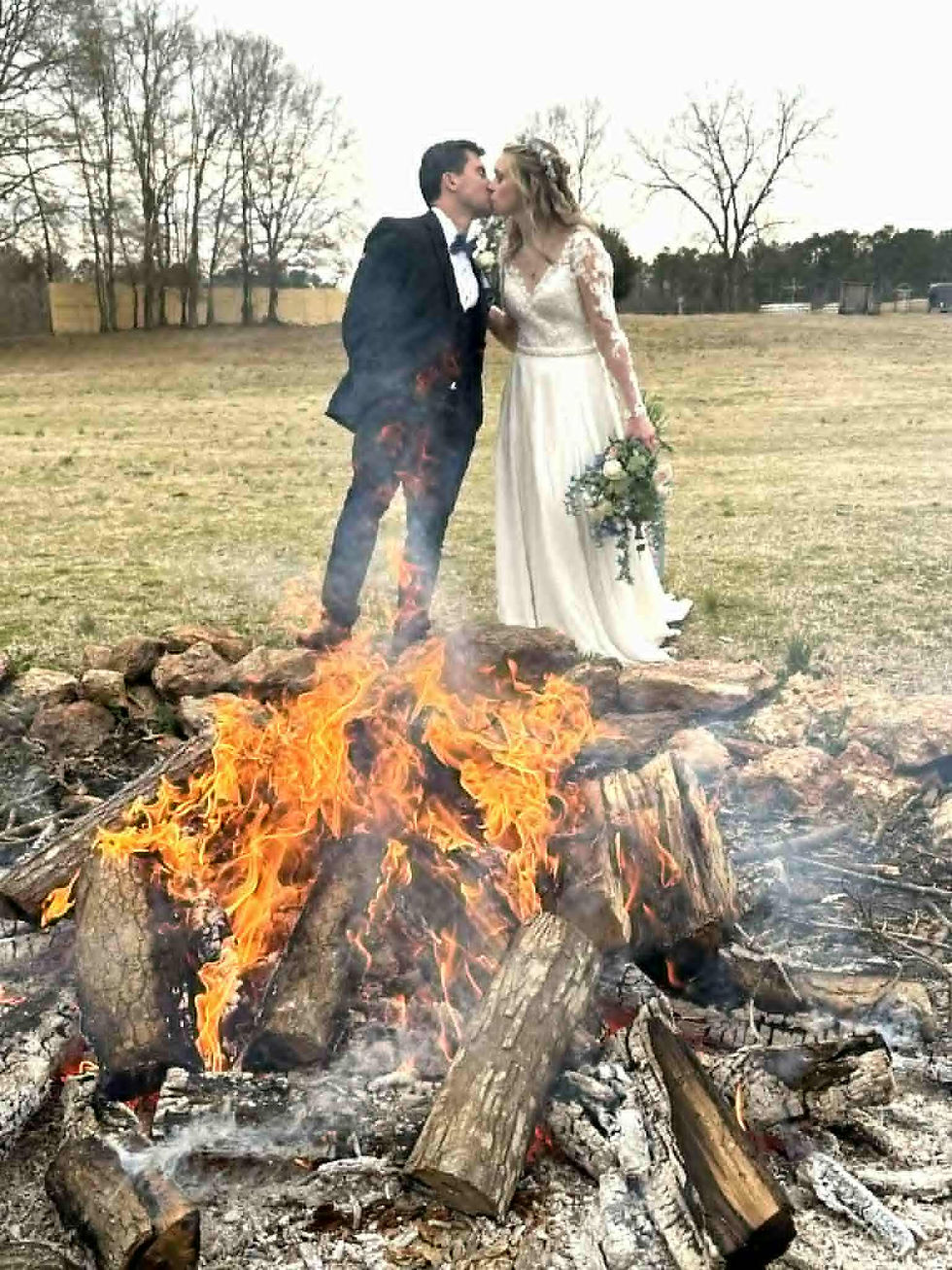Wedding Budgets: How Much Should You Really Spend on Your Big Day?
- ssfarmsmilner
- Feb 9, 2025
- 4 min read
Planning a wedding can be one of the most exciting times in a couple's life, but it can also feel overwhelming, especially when it comes to setting a budget. Many couples struggle to determine how much they should allocate for their special day. With various expenses—like the venue, catering, and entertainment—it’s easy to see how costs can add up quickly. This guide will help you navigate the essential aspects of wedding budgeting so that you can create a beautiful celebration without breaking the bank.
Understanding the Wedding Cost
It’s crucial to understand that expenses can significantly vary based on factors such as your location, guest list size, and venue selection. While the numbers may seem intimidating, remember that a memorable wedding is not just about the expenses. It's about creating an experience that reflects your relationship. A wedding that captures your personality can be extraordinary, regardless of the price tag.
Prioritize Your Values
To manage your budget effectively, start by identifying what aspects of the wedding mean the most to you as a couple. Do you both dream of a team of photographers and videographers but prefer to keep the floral arrangements simple? Or is a live band a must-have while opting for less expensive catering? Consider minimizing costs in specific areas, such as investing in digital invitations instead of printed ones. This prioritization allows you to allocate your resources to what truly matters.
Create a Realistic Budget Framework
Now, it’s time to create a structured budget. Break down your expenses into categories, which can include:
Venue costs (which may account for 30% of your total budget)
Catering and drinks (approximately 25% of total expenses)
Photography and videography
Floral design and decorations
Music and entertainment
Attire
Invitations and stationery
Cake
Having this detailed framework will enable you to estimate costs more accurately and make informed decisions during the planning process.
Determine the Value of Your Venue
When selecting a venue, evaluate what the facility and its packages include. Are tables and chairs provided? Is there a decor room with centerpiece and floral options? Is there a kitchen? Bride and groom suites? Sugar Shack Farms provides tables, chairs, a kitchen, bride and groom suites, an amazing decor room, and much more!
Right-Sizing Your Guest List
The number of guests you invite can greatly impact your wedding budget. A larger guest list leads to hefty costs in catering, seating, and stationery.
Ask yourself who you genuinely want to celebrate with. For example, trimming your guest list from 150 to 100 people can cut costs dramatically on catering alone. Smaller weddings often feel more intimate and meaningful, allowing for richer memories with the people who matter most to you.
The Importance of Research and Comparisons
Effective budgeting requires thorough research. Explore various vendors and compare their pricing and services before making final decisions. You might discover that one florist offers similar arrangements at a more reasonable rate than another.
Don’t hesitate to ask vendors about package deals or any off-peak discounts. For instance, holding your wedding on a Sunday instead of Saturday or during off-season could save you in venue fees. By being diligent in your research, you can make financially savvy choices that don’t compromise quality.
Making Use of a Wedding Budget Tracker
Managing your expenses can become overwhelming, especially with numerous purchases throughout the planning process. A wedding budget tracker can help keep everything in line.
You can either find free downloadable templates online or utilize a budgeting app on your smartphone. Regularly updating your tracker ensures you stay aware of your spending, allowing you to make adjustments as necessary without feeling stressed.
DIY: Save Money Without Sacrificing Style
Consider engaging in a few DIY projects to cut costs while adding a personal touch to your wedding. You can create your own invitations, centerpieces, or favors. Not only will you save money, but you'll also add unique elements that reflect your personality. Just be aware that some DIY projects can be time-consuming, so pick ones that fit your schedule.
Don't Forget to Plan for the Unexpected
Even with a carefully planned budget, unexpected costs can arise. Setting aside a contingency fund, typically around 10% to 15% of your total budget, can help manage unforeseen expenses, from last-minute guest additions to extra décor needs.
This buffer will save you stress as your wedding day approaches, ensuring you are prepared for anything that might come your way.
Final Thoughts
Choosing how much to spend on your wedding day ultimately depends on your preferences and financial situation. By creating a detailed budget, identifying your top priorities, and getting creative with your choices, you can craft a beautiful, memorable experience without overspending.
What matters most is the love and commitment you celebrate with those who mean the most. Remember, your wedding day is about your unique love story, and that’s what will make it unforgettable. So, embrace the planning process and enjoy every step leading up to your big day. Happy planning!



Comments